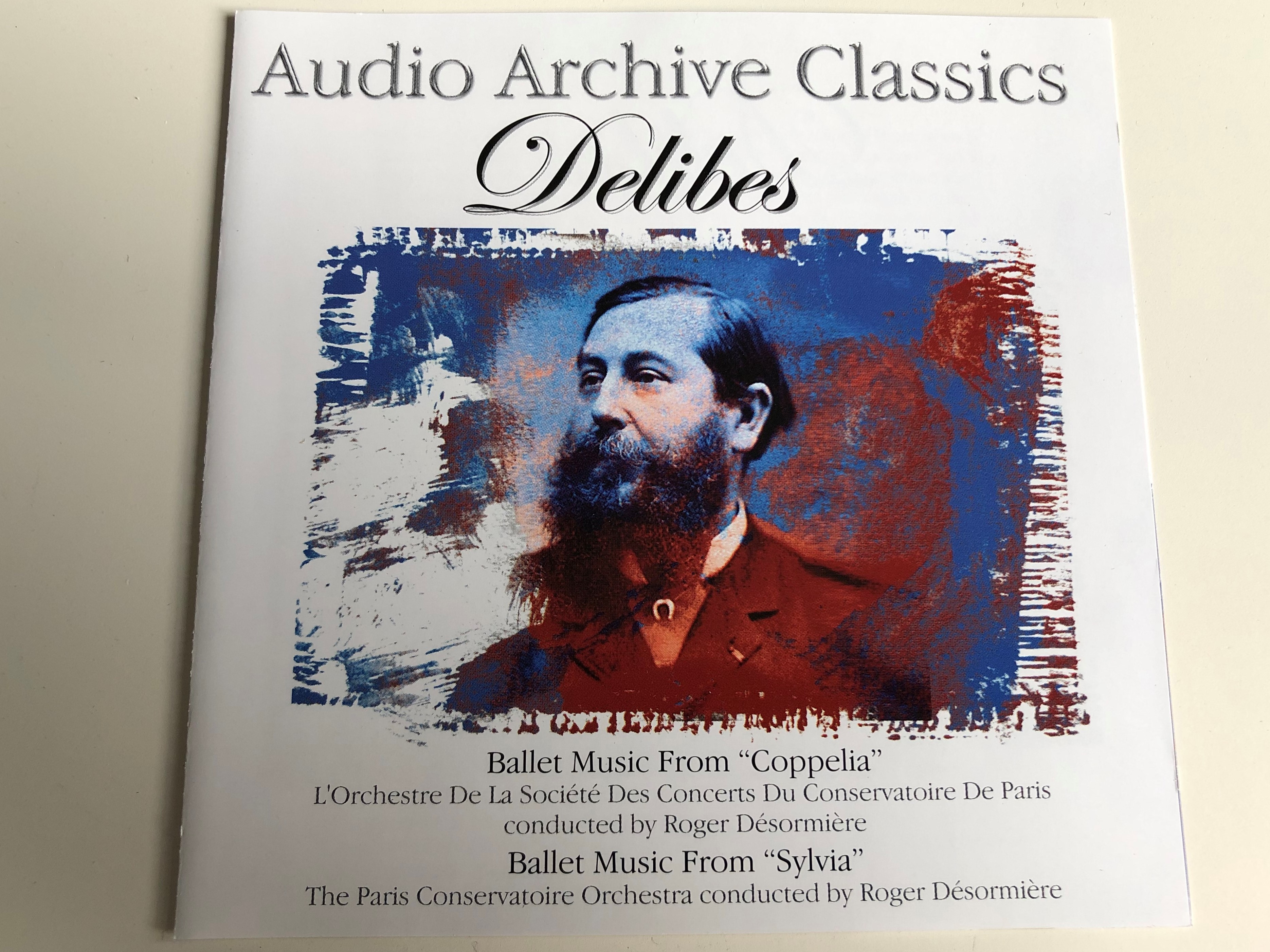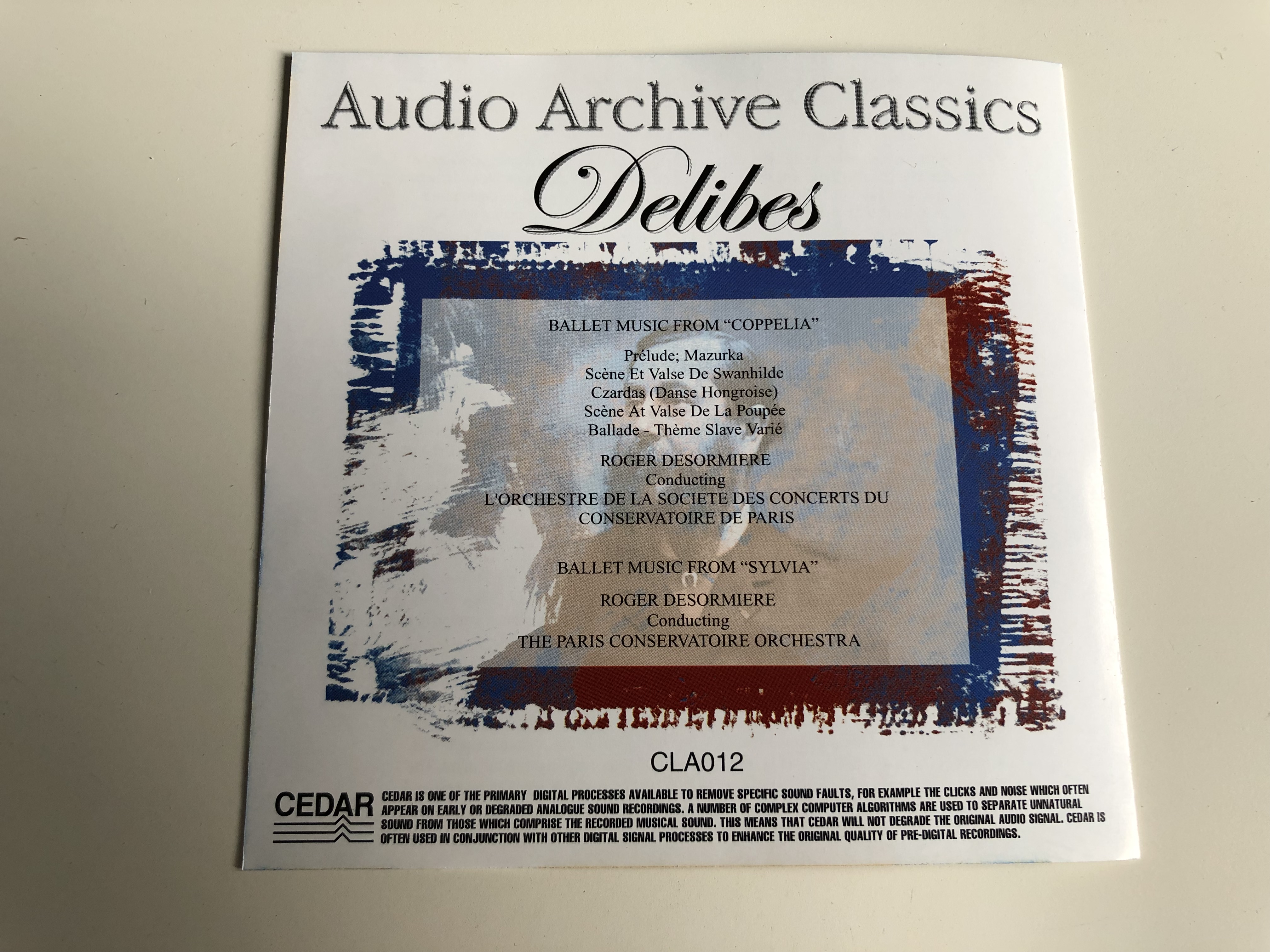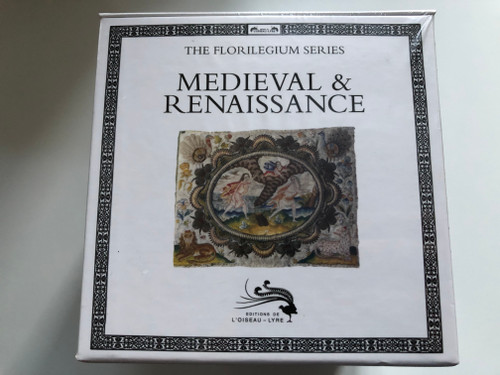Product Overview
Delibes / Audio Archive Classics / Ballet Music From "Coppelia"/ L'Orchestre De La Société Des Concerts Du Conservatoire De Paris / Conducted by Roger Désormiére / Ballet Music From "Sylvia" / The Paris Conservatoire Orchestra conducted by Roger Désormiére / Audio CD / CLA012
UPC 5033107801220
UPC 625282601228
MADE IN THE UK
TOTAL TIME 52:32
Coppélia (sometimes subtitled: The Girl With The Enamel Eyes) is a comic ballet originally choreographed by Arthur Saint-Léon to the music of Léo Delibes, with libretto by Charles-Louis-Étienne Nuitter. Nuitter's libretto and mise-en-scène was based upon two stories by E. T. A. Hoffmann: Der Sandmann (The Sandman) and Die Puppe (The Doll). In Greek, κοπελιά means girl, young lady. Coppélia premiered on 25 May 1870 at the Théâtre Impérial l'Opéra, with the 16-year-old Giuseppina Bozzacchi in the principal role of Swanhilda and ballerina Eugénie Fiocre playing the part of Frantz en travestie. The costumes were designed by Paul Lormier and Alfred Albert, the scenery by Charles-Antoine Cambon (Act I, scene 1; Act II, scene 1), and Édouard Desplechin and Jean-Baptiste Lavastre (Act I, scene 2).
The ballet's first flush of success was interrupted by the Franco-Prussian War and the Siege of Paris (which also led to the early death of Giuseppina Bozzacchi, on her 17th birthday), but eventually it became the most-performed ballet at the Opéra.
Modern-day productions are traditionally derived from the revivals staged by Marius Petipa for the Imperial Ballet of St. Petersburg in the late 19th century. Petipa's choreography was documented in the Stepanov method of choreographic notation at the turn of the 20th century. These notations were later used to stage the St. Petersburg version for such companies as the Vic-Wells Ballet (precursor of today's Royal Ballet).
Sylvia, originally Sylvia, ou La nymphe de Diane, is a full-length ballet in two or three acts, first choreographed by Louis Mérante to music by Léo Delibes in 1876. Sylvia is a typical classical ballet in many respects, yet it has many interesting features that make it unique. Sylvia is notable for its mythological Arcadian setting, creative choreographies, expansive sets and, above all, its remarkable score.
The ballet's origins are in Tasso's 1573 play Aminta, which provides the basic plot of Delibes' work. Jules Barbier and Baron de Reinachadapted this for the Paris Opera. The piano arrangement was composed in 1876 and the orchestral suite was done in 1880.
When Sylvia premiered on Wednesday, June 14, 1876, at the Palais Garnier, it went largely unnoticed. In fact, the first seven productions of Sylvia were not commercially successful. It was the 1952 revival, choreographed by Sir Frederick Ashton, that popularized the ballet. Ashton's success set the stage for the 1997, 2004, 2005 and 2009 productions, all of which were based on his 1952 choreography.
Tracklist:
BALLET MUSIC FROM "COPPELIA"
| 1 | Prélude; Mazurka | |
| 2 | Scène Et Valse De Swanhilde | |
| 3 | Czardas (Danse Hongroise) | |
| 4 | Scène At Valse De La Poupée | |
| 5 | Ballade - Thème Slave Varié |
BALLET MUSIC FROM "SYLVIA"
| 6 |
Sylvia Ballet Music: I. Prelude
|
|||
|
7
|
Sylvia Ballet Music: II. Intermezzo
|
|||
|
8
|
Sylvia Ballet Music: III. Pizzicato
|
|||
| 9 |
Sylvia Ballet Music: IV. Bacchus March
|












